- Level Foundation
- Duration 10 hours
- Course by Universitat Autònoma de Barcelona
-
Offered by

About
Have you ever wondered how humans relate to other living beings and what do you need to know to be able to understand current environmental problems? Do you know that many of these researches and knowledge have been described by women? This course gives answers to these questions and it is addressed to anyone interested in the relationship between humans and other living beings, as well as all those concerned about the global change situation that the planet is suffering. We will learn key concepts of environmental biology, what does the word biodiversity mean, what are the main types of living organisms that exist on the Earth and the importance of these for human beings. We will also learn that the gender perspective plays a key role in how we understand the world and in how science, and in particular, environmental biology, progress. What is this course useful for? In the current context of global change of the planet, sustainability is a key and transversal concept in many aspects of our life: education, politics, legislation, etc ... Knowing to appreciate the importance of our relationship with the natural environment will facilitate to work on issues related to sustainability with a solid knowledge based on evidence. On the other hand, there is growing evidence that the gender perspective is a key element in the transformation of many environmental problems on the planet. This course has been designed and developed by a team of women researchers applying the gender perspective in the content and structure of the course. In addition, with this course you will discover many other women who, throughout history, have made key contributions to environmental biology and that will surely allow you to start stretching the thread to know more of them.Modules
Course overview and welcome
1
Videos
- Welcome to the course
How the course works
3
Readings
- Organization of the course and evaluation
- About the certificate
- Solving doubts and technical issues
FAQs
2
Readings
- FAQ - General topics
- FAQs - Assessments and Certificate
Biodiversity and the plants world
1
Discussions
- What is biodiversity? (optional activity)
7
Videos
- Introduction to the course
- What is biodiversity? (Part I)
- What is biodiversity? (Part II)
- Citizen science as a tool to study biodiversity
- Opening the door to the plant world
- Why are flowers so important?
- Plants: how can we study them?
Complementary material
2
Videos
- Interview to Núria Gaju Ricart
- Interview to Sandra Lavorel
Biodiversity and the animals world
2
Discussions
- Why are insects so important? (optional activity)
- Vertebrates: how can we study them? (optional activity)
5
Videos
- Opening the door to the animal's world
- What do I see when I snorkel?
- The invisible world under the sea
- Why are insects so important?
- Vertebrates: how can we study them?
Complementary material
1
Videos
- Interview to Morgane Tidière
Evaluate your knowledge
1
Assignment
- Quiz 1
Ecosystems and humans
3
Discussions
- Going deep into marine ecosystems (optional activity)
- Global change: changing the Earth? (optional activity)
- How can we stop global change? (optional activity)
8
Videos
- A look into ecology
- Discovering freshwater ecosystems
- Going deep into marine ecosystems
- What do we know about forests?
- Global change: Changing the Earth
- Climate change and its effects on Human Health
- How can we stop global change? (Part I)
- How can we stop global change? (Part II)
Complementary material
1
Videos
- Interview to Sandra Brucet Balmaña
Evaluate your knowledge
1
Assignment
- Quiz 2
Human Health and Environment
6
Discussions
- Human health depends on the environment (optional activity)
- Could humans live without bacteria? (optional activity)
- Nutrition and contaminants in the food chain (optional activity)
- Agriculture and soils in the contemporary world (optional activity)
- Sustainable Agriculture (optional activity)
- Insights of the sustainable fisheries (optional activity)
10
Videos
- Human health depends on the environment
- A major health problem: Pollen and allergies
- Could humans live without bacteria?
- Ethnobotany: relations between humans and plants
- Benefits of nature on human health and well-being
- Nutrition and contaminants in the food chain
- Agriculture and soils in the contemporary world
- Sustainable Agriculture
- Genetic Improvements in Agriculture
- Insights of the sustainable fisheries
Evaluate your knowledge
1
Assignment
- Quiz 3
Complementary material
1
Videos
- Interview to Rosa Maria Poch
Satrategies for the conservation of the environment
4
Discussions
- Insights into ecofeminism (optional activity)
- The Red List of threatened species (optional activity 1)
- The Red List of threatened species (optional activity 2)
- Past, present and future in marine conservation (optional activity)
10
Videos
- Insights into ecofeminism
- Culture of peace and sustainability
- The key for the future: environmental education
- What are ecosystem services?
- The Red List of threatened species
- The role of zoos in conservation biology
- Past, present and future in marine conservation
- Stories about consevation of big mammals (I)
- Stories about consevation of big mammals (II)
- Closure
Evaluate your knowledge
1
Assignment
- Quiz 4
Auto Summary
Explore the vital intersection of gender and environmental science with the "Women in Environmental Biology" course, tailored for those fascinated by the intricate relationships between humans and the natural world, and concerned about global environmental changes. This foundational course, offered by Coursera, is designed by a team of women researchers and highlights the significant contributions of women in environmental biology. Throughout the course, learners will delve into essential concepts such as biodiversity, the variety of living organisms on Earth, and their crucial roles for human survival. Additionally, the course emphasizes the importance of a gender perspective in scientific progress and environmental problem-solving. This 600-hour course is perfect for individuals aiming to deepen their understanding of sustainability and its impact on various aspects of life, including education, politics, and legislation. It provides a solid evidence-based foundation for addressing sustainability challenges effectively. Enroll in this course through Coursera's flexible subscription options, including Starter and Professional plans, and join a community of learners dedicated to appreciating and enhancing our relationship with the natural environment through the lens of gender perspectives.
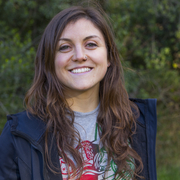
Andrea Vidal Durà
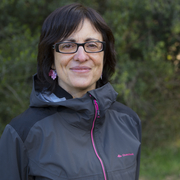
Gemma Armengol Rosell
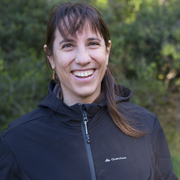
Anna Soler Membrives
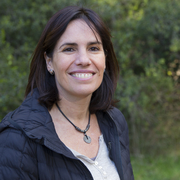
Mercè Llugany Ollé
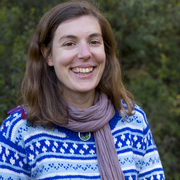
Mariona Ferrandiz Rovira
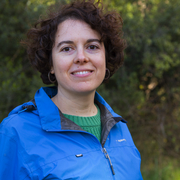
Sandra Saura Mas


